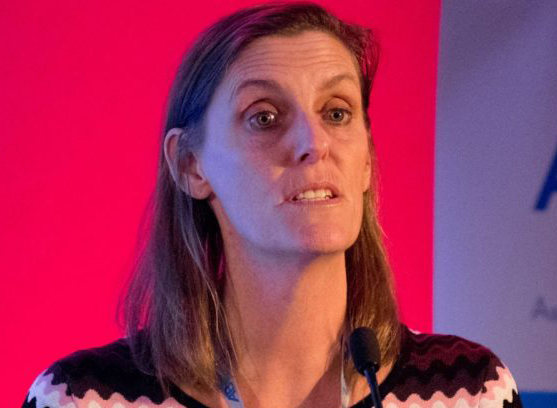Indigenous, black and Pacific Islander Americans have experienced the highest death tolls from Covid-19. According to a study by APM Research Lab, these groups have a COVID-19 death rate of double or more that of White and Asian Americans. One in 645 Black Americans has died since the start of the pandemic.
Other research by the Economic Policy Institute found that black workers and their families are facing greater health risks whilst also suffering from devastating job losses.
To mark Black History Month in the USA in February, Inclusiv (previously known as the National Federation of Community Development Credit Unions), launched a campaign to honour the black-led credit unions and their teams who are tackling the immediate consequences of the coronavirus and the persistent economic and racial inequalities.
Throughout the month, Inlcusiv has hosted a series of webinars and publications to feature the work of minority designated credit unions serving low-income communities and communities of colour.
Inclusiv also launched a $20m Racial Equity and Resilience Investment Fund deploying secondary capital to expand economic relief and financial inclusion for credit unions that serve communities of colour. Backed by the Robert Wood Johnson Foundation, the fund will leverage more than $200m in lending.
The initiative builds on the Inclusiv Resilience Grant Fund, launched in June 2020, which has raised more than $1m in grant funds to 59 minority-designated credit unions.
Related: Federation of Southern Cooperatives pushes for land equality
“Community development credit unions have been on the front lines working to secure financial security for their members and communities. Minority credit unions are frequently the sole source of responsible capital in communities of colour,” said Cathie Mahon, Inclusiv CEO.

“This capital will increase access for low-income households, ensure that stimulus relief is distributed equitably, and respond to the unprecedented level of economic shock caused by Covid-related shutdowns.”
River City Federal Credit Union in San Antonio, Texas, is among those receiving a loan from the Resilience Investment Fund, which will help it expand its banking and lending to Latinx and immigrant communities.
“Working with community partners including the Mexican Consulate and the YWCA, we designed a suite of products designed for those who haven’t had accounts in the past and have yet to build credit,” says River City CEO Jeff Ivey. “These deposit and loan products are designed to bring people into the credit union, save them money by not paying excessive fees or interest, and begin to establish financial stability. Breaking generational poverty can start with finding a financial institution willing to take the time and effort to help you understand how things work.”
According to Inclusiv, credit unions receiving secondary capital investments leveraged this capital 60 times over in a period of five years.
Co-ops are also making a difference in sectors other than finance. The Democracy at Work Institute (DAWI), a sister organisation of the US Federation of Worker Cooperatives (USFWC), says worker ownership and democratic workplaces can boost the wealth and wellbeing of black workers. USFWC says racial and economic justice is central to its mission and has officially endorsed the policies of the Movement for Black Lives (M4BL), a coalition of more than 50 groups.
“On average, employee-owners making less than $30,000 have 17% greater median household net worth and 22% higher median income from wages than their non-owner peers,” say DAWI’s Todd Leverett and Phillip Reeves.
Over the last decade the number of worker co-ops in the USA has nearly doubled, an increase occurring primarily in communities of colour, especially immigrant communities, and has made the sector as a whole more racially diverse. This is reflected at governance level: the majority of USFWC’s board members are multilingual and people of colour.
In agriculture a successful example is the Federation of Southern Cooperatives, which emerged during the civil rights movement of the 1960s to compensate for loss of black-owned farmland. The Federation brings together black farmers and landowners and co-ops, while helping to develop co-ops and credit unions. With support from the Ratliff Charitable Foundation, it has recently awarded disaster relief funds to 10 farmers in five states.
Related: UK co-op movement affirms commitment to racial equality
Co-ops are also seen as a viable tool to empower communities of colour by the Biden administration. Legislation recently passed by the House Agriculture Committee as part of the Covid-19 rescue plan allocates resources to help socially disadvantaged farmers establish co-operatives to ensure they can own, control and benefit from the businesses they use.
“We look forward to working with the White House and Congress as they continue to consider how co-operatives can help families and businesses build back a more equitable and inclusive economy,” said NCBA CLUSA’s president and CEO, Doug O’Brien.
But in spite of their contribution to addressing injustice and economic inequality, co-operatives still face policy challenges that limit their ability to start up, survive, and grow. Last year NCBA CLUSA released the report Policy Strategies to Build a More Inclusive Economy with Cooperatives, which explores some of the challenges to launching, sustaining and expanding co-operatives. The report suggests a series of co-operative policy goals to enhance the work of co-operatives that promote equity and community power among people of colour and people with low incomes.
These include financial support, grants and loans, tax credits and subsidies, technical assistance and training, preferences in contracts and procurement.

